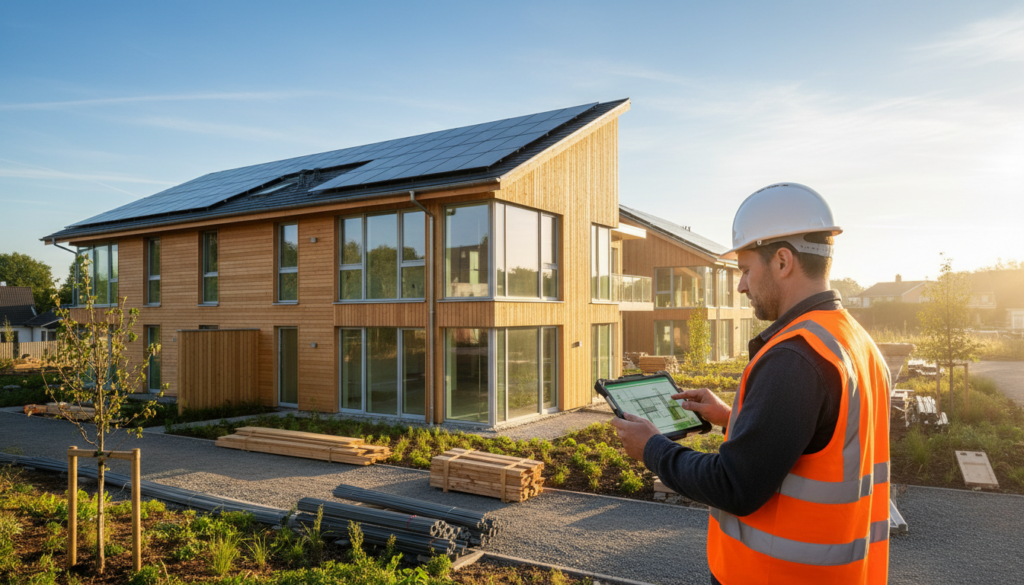In today’s world, the importance of sustainability cannot be overstated. As we continue to face environmental challenges, it is crucial for industries to adopt sustainable practices, and general contracting is no exception. We recognize the significance of sustainability in our work as an expert in damage repair and restoration. In this article, we’ll explore the benefits and importance of building green in general contracting.
Why Building Green Matters
Building green refers to the practice of constructing and operating buildings in an environmentally responsible and resource-efficient manner. It involves considering the entire lifecycle of a building, from design and construction to operation and maintenance. The benefits of building green are numerous, including reduced energy consumption, lower operating costs, improved indoor air quality, and a smaller carbon footprint. By implementing sustainable practices, general contractors can contribute to a healthier environment and a more sustainable future.
The Role of Professionals in Implementing Sustainability
When it comes to incorporating sustainability into general contracting projects, it is crucial to seek professional expertise. Hiring experienced professionals helps to ensure that sustainable practices are effectively implemented from start to finish. Experts possess the knowledge and skills to assess the environmental impact of construction projects, select eco-friendly materials, and utilize energy-efficient systems. They understand the importance of reducing waste, conserving resources, and minimizing the overall environmental footprint of a project.
Key Sustainable Practices in General Contracting
There are several key sustainable practices that general contractors can adopt to promote green building:
- Energy Efficiency: Implementing energy-efficient designs and technologies, such as LED lighting, solar panels, and smart home systems, can significantly reduce energy consumption and lower utility costs.
- Water Conservation: Incorporating water-saving fixtures, rainwater harvesting systems, and efficient irrigation methods can help minimize water usage and promote sustainable water management.
- Waste Reduction: Proper waste management strategies, including recycling, reusing materials, and minimizing construction waste, can significantly reduce the environmental impact of a project.
- Sustainable Materials: Choosing eco-friendly materials with low embodied energy and minimal environmental impact, such as recycled or locally sourced materials, can contribute to greener construction practices.
- Indoor Air Quality: Prioritizing ventilation systems, using low-VOC (Volatile Organic Compounds) products, and ensuring proper air filtration can improve indoor air quality and promote a healthier living environment.
Conclusion
Sustainable practices in general contracting, particularly in the context of building green, play a crucial role in mitigating environmental challenges and creating a more sustainable future. At Upper Restoration, we recognize the significance of sustainability in our work. By collaborating with professionals who prioritize sustainability, clients can ensure that their general contracting projects are not only efficient and cost-effective, but also environmentally friendly. Together, we can build a greener and more sustainable world.
As a new home owner, I couldn’t have asked for a better company. Lou and his team made my hard situation an easy and stress…Read More » a month ago via Google Alisha T We recently had major water damage in our home, affecting the entire kitchen, dining room, and basement. Louis from Upper Restoration showed up quickly, assessed…Read More » 2 months ago via Google Cathy Choi We recently sustained some damage to our roof and our central air system due to a storm. Upper Restoration had to open our ceiling to…Read More » 2 months ago via Google Chimere Luke I had the pleasure of working with Upper Restoration and their incredible team during a recent project for my home after a flood, and I…Read More » 8 months ago via Google Lewis James Lirosi



